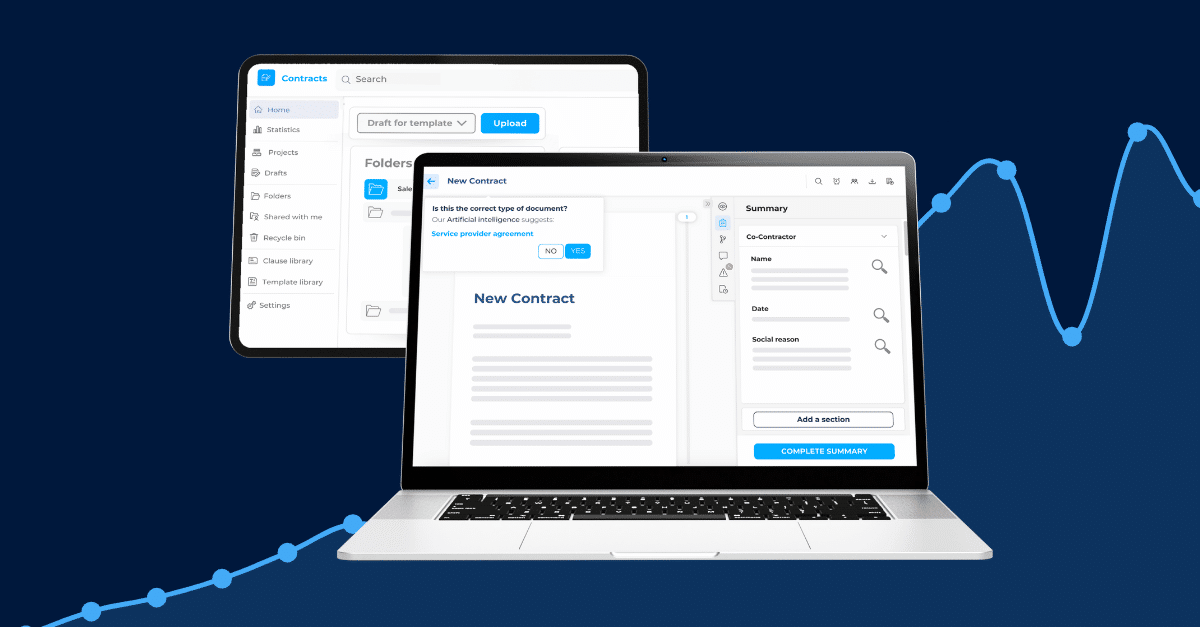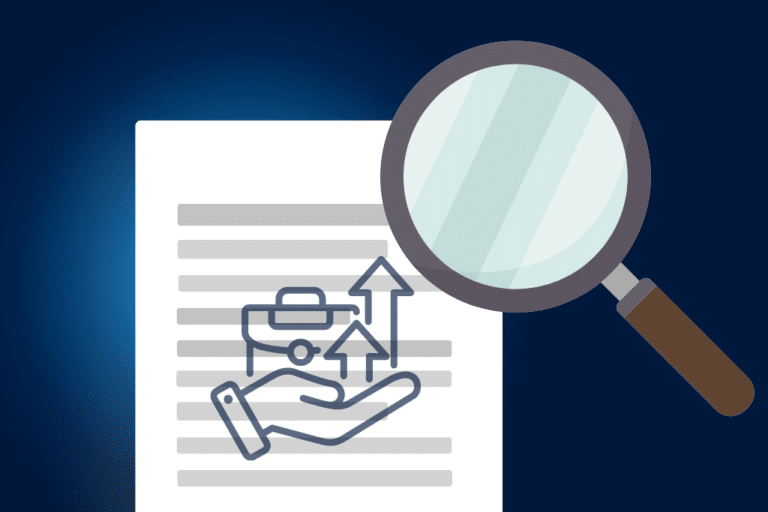Effective contract compliance tracking ensures organizations meet obligations, reduce risk, and strengthen business relationships by centralizing data, automating alerts, and streamlining reporting. AI-powered tools and integrated platforms like CLM systems transform compliance from a manual burden into a proactive, strategic advantage.
Contract compliance tracking and reporting are essential components of effective contract management. Organizations face increasing pressure to monitor contractual obligations, ensure regulatory adherence, and maximize the value of business relationships. Without proper systems in place, companies risk financial penalties, damaged partnerships, and missed opportunities. This guide explores the fundamentals of contract compliance, examines common challenges, and presents solutions to streamline tracking and reporting processes.
Understanding Contract Compliance
Contract compliance refers to the fulfillment of all obligations, terms, and conditions outlined in agreements between parties. It encompasses monitoring deadlines, tracking deliverables, and ensuring all contractual requirements are met throughout the contract lifecycle.
Effective compliance management requires visibility into contract status, performance metrics, and potential risks. Additionally, it involves generating reports to demonstrate adherence to both internal policies and external regulations.
The stakes are high – research shows that ineffective contract management costs businesses up to 9% of their annual revenue whereas organizations with robust compliance tracking systems experience fewer contract disputes and achieve significantly higher contract renewal rates.
Common Challenges in Contract Compliance Management
Organizations frequently encounter obstacles when attempting to track and report on contract compliance.
Fragmented Data and Manual Processes
Many companies still rely on spreadsheets, shared drives, or email for contract storage and tracking. This approach creates information silos, making it difficult to monitor obligations across departments. Legal teams spend excessive time on manual reviews rather than strategic activities.
Limited Visibility and Reporting Capabilities
Without centralized systems, generating comprehensive compliance reports becomes time-consuming and error-prone. Stakeholders lack real-time visibility into contract status, increasing the risk of missed deadlines or overlooked obligations.
Resource Constraints
Legal departments often operate with limited resources while managing growing contract portfolios. This imbalance makes thorough compliance monitoring challenging, particularly for organizations with complex agreements or strict regulatory requirements.
Regulatory Complexity
Evolving regulations across industries and jurisdictions add layers of complexity to compliance tracking. Financial services, healthcare, and other regulated sectors face particularly stringent requirements regarding privacy, data protection, and reporting.
Essential Elements of Effective Compliance Tracking
To overcome these challenges, organizations should implement systems with the following key features.
Centralized Contract Repository
A unified storage location for all contracts and related documents forms the foundation of effective compliance tracking. This centralization ensures all stakeholders access the same information and eliminates version control issues.
Automated Alerts and Notifications
Automation transforms compliance from reactive to proactive. Systems should automatically alert relevant team members about upcoming deadlines, renewal dates, and other critical milestones to prevent non-compliance incidents before they occur.
Customizable Dashboards and Reports
Different stakeholders require different views of contract data. Procurement teams need vendor performance metrics, while legal departments focus on risk factors and compliance status. Customizable dashboards and reports address these varied requirements.
Implementing a Robust Reporting System
Effective reporting provides insights beyond basic compliance status. Organizations should focus on these reporting elements.
Key Performance Indicators
Develop metrics that align with business objectives, such as:
- Percentage of contracts with compliance issues
- Average time to resolve compliance discrepancies
- Financial impact of non-compliance incidents
Stakeholder-Specific Reporting
Tailor reports to address the needs of different internal teams:
- Executive leadership requires high-level compliance summaries and risk assessments
- Legal teams need detailed obligation tracking and regulatory compliance status
- Procurement needs vendor performance metrics and relationship health indicators
Audit-Ready Documentation
Maintain comprehensive audit trails that document compliance activities, reviews, and remediation efforts. This documentation proves invaluable during internal audits or regulatory examinations.
Technology Solutions for Contract Compliance
Modern contract management software offers powerful tools to enhance compliance tracking and reporting.
Contract Lifecycle Management (CLM) Systems
CLM software provide end-to-end management of contracts from creation through execution and renewal. These platforms typically include compliance tracking features, automated workflows, and reporting capabilities.
AI-Enhanced Compliance Monitoring
Artificial intelligence transforms contract compliance by automatically extracting obligations from agreements, monitoring performance against requirements, and identifying potential issues before they escalate. AI tools analyze contract language to flag risky provisions and inconsistencies across document portfolios.
An advanced example of AI in contract compliance is DiliTrust’s proprietary Risk Detector. This tool accelerates contract review by automatically identifying risky clauses and deviations from internal standards. It leverages organization-specific playbooks to flag non-compliant content and suggest redlines or approved alternatives. By automating repetitive tasks and applying predefined rules, Risk Detector enhances review accuracy, shortens negotiation cycles, and boosts legal team efficiency. It seamlessly integrates into DiliTrust’s broader AI ecosystem, offering a unified platform for contract intelligence and governance.
Integration Capabilities
Effective compliance solutions integrate with other business systems, including:
- ERP systems for financial obligation tracking
- CRM platforms for relationship management
- Procurement systems for vendor performance monitoring
This integration creates a unified view of contractual relationships and eliminates data silos.
Best Practices for Optimizing Compliance Processes
Technology alone cannot solve compliance challenges. Organizations should also implement these best practices.
Standardize Contract Language and Terms
Develop template agreements with standardized compliance provisions. Consistent language makes tracking obligations more straightforward and reduces interpretation ambiguities.
Establish Clear Roles and Responsibilities
Define who owns compliance monitoring for different contract types and obligations. Clear accountability ensures nothing falls through the cracks.
Create Compliance Checkpoints
Implement regular review cycles to assess compliance status and address emerging issues. These reviews should occur at critical points in the contract lifecycle, not merely at renewal.
Measuring ROI of Contract Compliance Initiatives
Organizations often struggle to quantify the benefits of improved compliance tracking. Focus on these measurable outcomes.
Risk Mitigation Value
Calculate the financial impact of avoiding contract disputes, penalties, and regulatory fines. Include both direct costs (legal fees, settlements) and indirect costs (reputation damage, lost business).
Efficiency Improvements
Measure time saved through automation of compliance tracking and reporting. Quantify how these efficiencies allow legal and business teams to focus on higher-value activities.
Relationship Enhancement
Track improvements in vendor and partner relationships resulting from better compliance management. Measure increases in renewal rates and expansion opportunities.
The Future of Contract Compliance
The contract compliance landscape continues to evolve. Forward-thinking organizations are preparing for the following elements.
Increased Automation
As AI technology advances, more compliance tasks will become automated, from obligation extraction to performance monitoring and risk assessment.
Predictive Analytics
Systems will increasingly predict potential compliance issues based on historical data and contract patterns, allowing for preventive action.
Enhanced Collaboration Tools
Future compliance solutions will facilitate better collaboration between internal teams and external partners, creating transparency throughout the contract lifecycle.
Unlocking the Benefits of Effective Contract Compliance
Effective contract compliance tracking and reporting deliver significant benefits: Reduced risk, improved relationships, and enhanced operational efficiency. By implementing robust systems and processes, organizations transform compliance from a burden into a strategic advantage.
For companies seeking to improve their contract compliance capabilities, DiliTrust offers comprehensive contract management functionality, including advanced tracking and reporting features. With centralized storage, automated alerts, and customizable dashboards, the solution helps organizations monitor obligations, generate compliance reports, and mitigate contractual risks.
Take the first step toward better contract compliance by assessing your current processes and identifying opportunities for improvement through automation and standardization. Contact us today!




